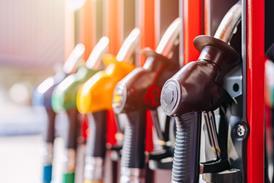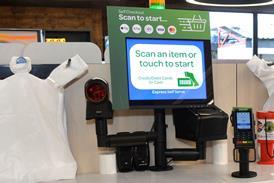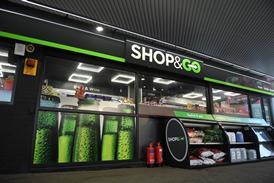It seems a long time ago, but do you remember when the first pay-as-you-go mobile phone cards began to appear on forecourts?
We first started to record the sales of them as a separate sales group in the late 1990s. At the time it made sense to include them as a genuine shop sales line. In those early days the typical margin earned was around 10%. True, the margins didn’t stay so attractive for long, but on most counts the cards were a genuine sales line for the retailer.
Fast forward to 2007. Today the old ’mobile voucher’ is obsolete. Instead we have electronic terminals which don’t just top up mobile phones, but allow customers to pay utility bills and make all sorts of other transactions.
However, progress usually brings some side effects. From our perspective the first question is whether these electronic top-ups can really be counted as sales at all. There are two very strong arguments for saying that they should be excluded from the data. Firstly there’s no longer any physical stock as such and secondly, the retailer is really only earning a commission on the transactions going through his/her site. The only remaining accounting reason for including the ’sales’ within the shop figures is that the retailer still has to account for the cash physically taken at the point of sale, hence that revenue must be accounted for somewhere.
And revenue there certainly is. It’s not unknown for a reasonably well-placed site to sell £500,000-worth of electronic transactions in a year. Assuming your bank charges are 40p per £100 for counting and accepting all that cash (and it is mostly cash) - that’s a cost of £2,000 in bank charges. And that’s before the bank charges you for each direct-debit payment.
In terms of commission earned for these transactions, we see typical offerings of between 0.75% and 1.2% - in other words, based on £500,000-worth of turnover, you can expect earnings of anything between £3,750 and £6,000. A typical rate is around 0.875% after VAT, giving a commission income of £4,375. So, after cash-handling costs, that gives you a gross of maybe £2,375 for the year.
However, that’s not the end of the story. At some point you may have given the terminal owner a security deposit and some form of indemnity against your running off with their cash. Eventually, after they’ve decided that they trust you, you might get most of it back, but in the meantime that’ll have your money sitting in their bank account.
On the plus side at least there’s no stock in which to tie up your money, or to get lost - but from the accountant’s perspective there’s another little problem. Just how do you ensure that you’re not losing cash, bearing in mind that the terminal owner will direct debit your bank account every few days for the sales? Whether you’ve actually taken and banked the cash is your problem. As with any other electronic money transmission system, there are plenty of reports available from the terminal to tell you what’s supposed to have gone through it. Unfortunately, it is alarming to hear from quite a few retailers that they hardly ever check them. It seems that many take it on trust. As long as the bank statement shows direct debits going out and commission coming in, then everything must be OK. Well, you might say that’s one way of controlling £500,000-worth of your cash.
There is of course the prevailing argument from fans of these terminals that even if they don’t make much money in themselves, they at least bring people into the shop. But that’s pretty well the same reason given by retailers who are not so keen on them. They complain that most of the customers coming in to use the facility don’t buy anything else in the shop.
And as for our problem of defining sales - nowadays we tend not to include revenue from payment terminals as part of our shop sales figures, preferring to account for the cash receipts/payments on the balance sheet, and only including the commission in ’other income’ section. That doesn’t mean that our ’all sites’ figures don’t include any of these sales - some long-standing clients prefer to leave things as they’ve always seen them, but almost certainly any new set-ups will exclude these things from shop sales.























No comments yet